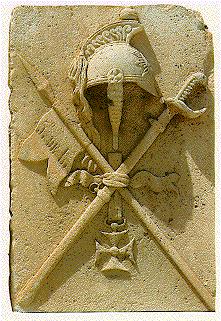

You have now arrived in a city with three thousand years of history behind it. And in order to understand it and enjoy it all the more, we should consider not only its present but also its past, so as to delve a little more deeply into the idiosyncrasies of the city and its inhabitants.
The first settlements in the area were centred around the slopes of mount Benacantil, occupied today by the castle of Santa Bárbara, which combined the privileges of being close to the sea yet offering the protection of being high above the surrounding land. Although no definite remains have been found, historians are sure that the Iberians fortified the hilltop. Another settlement was located in the Benalúa area, where the Roman city of Lucentum was built, the predecessor of the city of Alicante today. Others villages from the same period have been located at the Albufereta and in the Serra Grossa.
With the arrival of the Moors, the present-day city was built under the protection of the castle. Alfonso, later to become the 10th, known as the Wise, conquered the city in 1246 for the Castilian crown, and in 1308 Jaime II incorporated Alicante in the Kingdom of Valencia. In 1490 Ferdinand the Catholic granted Alicante its City Charter, and 100 years later it was to become the natural port of Castile, propitiating a growing sea trade, thanks to which the economy of the area began to flourish and population grew considerably, with Alicante attaining the rank of Spain's third largest trading port.
Alicante has seen its share of wars and conflicts throughout the history of Spain, and due to its position on the coast, all attacks have been made from sea. In 1691, under the reign of Charles II, the French Armada bombed the city for seven consecutive days. Without so much as a breathing space, it became involved in the War of Spanish Succession (1701-14). It sided with the Bourbons and suffered the bombardment and destruction of the castle of Santa Bárbara by English troops. During the War of Independence (1804-14), known as the Peninsular War, it was the provisional capital of the Kingdom of Valencia while Valencia proper was occupied by Major General Suchet.
In the 18th century Alicante began to recover after the disasters of recent wars, but it was really in the 19th century when it started to expand considerably. With the arrival of the railway in 1858, its linkage to the centre of the peninsula guaranteed its leading role as a port, giving it the cosmopolitan air of a city facing the sea and welcoming maritime traffic. Today, Alicante is the second largest city in the Land of Valencia with a population of 261.255 (1991), a central location on the Costa Blanca, and now deriving much of its income from the tourist industry.